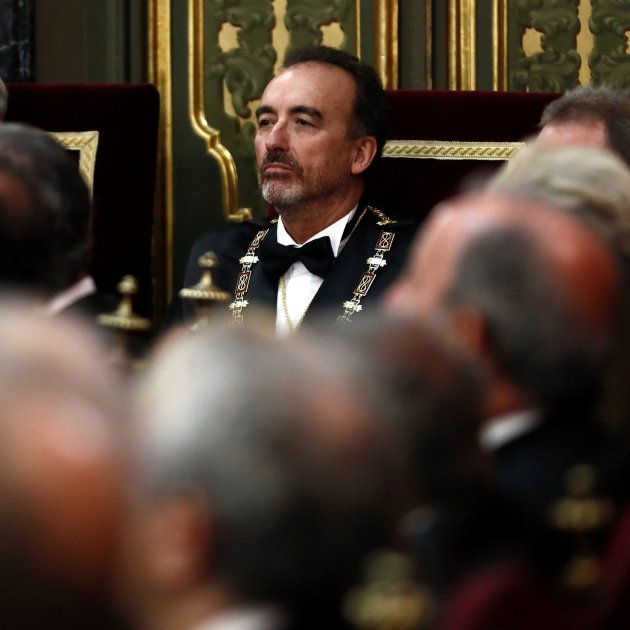Spain's Supreme Court has reacted quickly to assert its authority after it emerged this Tuesday morning that the Catalan pro-independence political prisoners might be allowed to spend the coronvirus lockdown period confined in their homes instead of the prison. The court, which last October sentenced the nine politicians and civil society leaders to long jail terms for sedition and misuse of public funds, has made it clear that it is keeping a close watch on the decision making process on the pro-independence leaders and will take action if necessary.
In a short press release, the Supreme Court has said that "in the event that the prison treatment boards who have to decide on the Catalan pro-independence leaders agree to release them so that they can comply with the confinement in their respective homes, the Supreme Court will ask each of these boards and the director of the respective prison centres to explain the legal basis behind their decisions, as soon as possible."
The court even calls for "the officials who have supported this agreement to be formally identified". According to the Supreme Court, "this would be carried out in the context of establishing criminal liability for a possible crime of administrative misconduct."
This Tuesday morning, Catalan justice minister Ester Capella said that "there should be fewer people" in prisons in the current context of an infectious disease outbreak and for this reason she has asked the prisons administrations to "carefully analyze what the law permits".
She not only opened the door to the sending home of more of the prisoners who are on an open (or level three) prison regime, 69% of whom have already been allowed to spend the confinement period at home, but also raised the possibility that prisoners who have been granted work regimes outside the prison, under article 100.2 of the prison regulations, could also be in the same situation. This category includes all nine of the political prisoners convicted for their role in the Catalan independence referendum and the events around it in 2017.
Yesterday, the lawyer acting for prisoners Oriol Junqueras and Raül Romeva filed a submission to the Constitutional Court, calling for his clients' release while the coronavirus emergency is on. The argument presented quoted the World Health Organization and the Council of Europe who have called on states to impose "alternatives to jail" during the pandemic. Jordi Cuixart has also asked to be released during the pandemic.
Starting this Monday, the prison treatment boards, who have the decision making power in this matter, will meet to decide what flexibiliity can be allowed to prisoners granted the article 100.2 provision as well as those serving a standard (level two) prison regime. The measures are "being implemented step by step," sources in the Catalan justice ministry told ElNacional.cat.
The authority with decision making power on the matter is the judge of the prisons court. But the matter can be appealed. And in such a case, the decision would then be passed to Spain's Supreme Court, which has already acted preemptively and warned that allowing the Catalan prisoners to spend the coronavirus period at home could be a crime.
